
How Nutrigenomics Can Shape Your Diet for Longer, Healthier Living
As science advances, it’s becoming clear that nutrition is not a one-size-fits-all solution. Enter nutrigenomics, a field of research that explores ho...
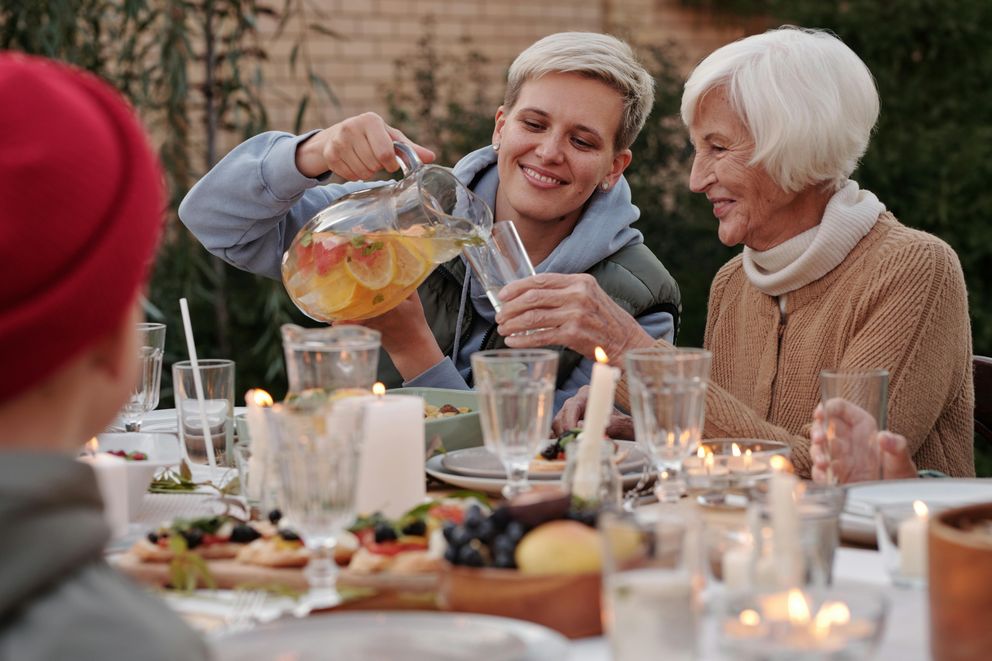
Women from Blue Zones—regions of the world known for their high rates of longevity—live longer, healthier lives, often free from chronic disease well into old age. The concept of Blue Zones was first coined by researcher Dan Buettner, who identified five regions with the highest concentration of centenarians: Okinawa (Japan), Sardinia (Italy), Ikaria (Greece), Nicoya Peninsula (Costa Rica), and Loma Linda (California). While each area has its unique cultural practices, there are consistent lifestyle habits that promote longevity and wellness, particularly for women.
This article will explore the key practices that women in Blue Zones follow and how these lessons can inspire healthier living for women worldwide.
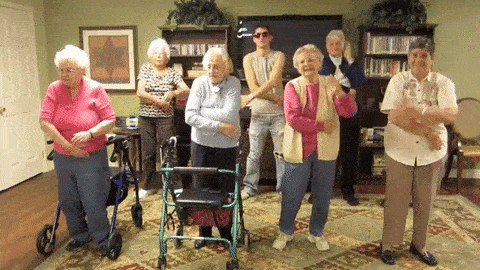
Blue Zones are geographic areas where people live significantly longer, often reaching the age of 100 or more with fewer health issues like heart disease, diabetes, or cancer. Researchers have identified several commonalities among Blue Zone populations, including diet, physical activity, strong social networks, and a sense of purpose. For women, these elements are particularly crucial, influencing not only their physical well-being but also emotional and mental health.
One of the most prominent longevity factors in Blue Zones is the plant-based diet. While none of these regions are strictly vegetarian, they all emphasize a diet rich in whole, plant-based foods. Women in Blue Zones tend to eat fruits, vegetables, legumes, and whole grains, which provide high levels of vitamins, minerals, and fiber while promoting heart health and reducing inflammation.
Takeaway: Focus on a plant-forward diet rich in whole foods, limiting processed foods and added sugars. Incorporating plenty of vegetables, legumes, and healthy fats like olive oil can protect against chronic diseases and boost longevity.
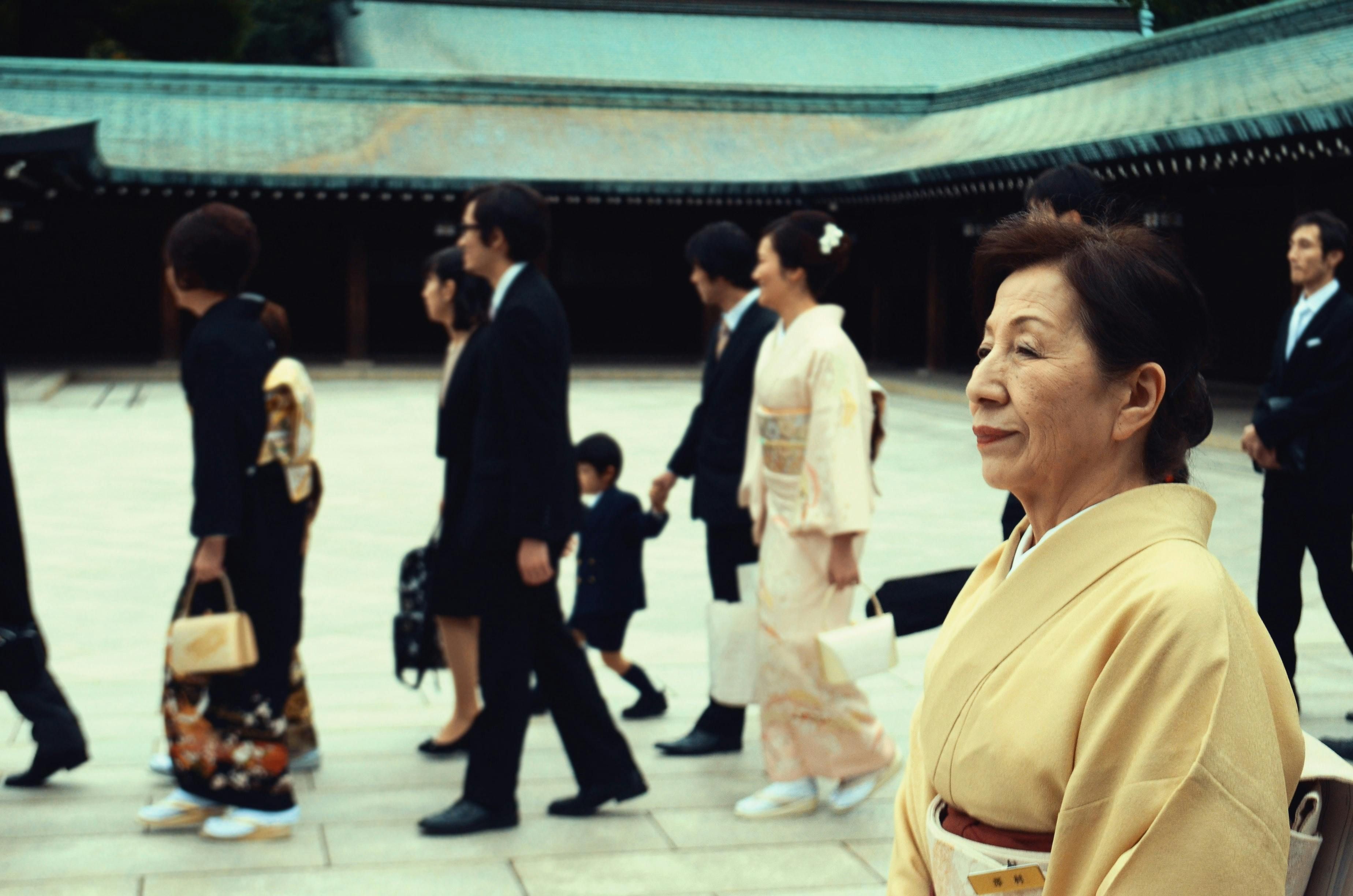
Women in Blue Zones do not engage in intense exercise regimens but instead incorporate moderate physical activity throughout their daily routines. This includes walking, gardening, farming, and other forms of movement integrated into their lifestyle.
Takeaway: Incorporate natural, daily movement into your routine—whether it’s walking, gardening, or simply taking the stairs. Consistent, moderate activity is better for long-term health than intense, irregular exercise.
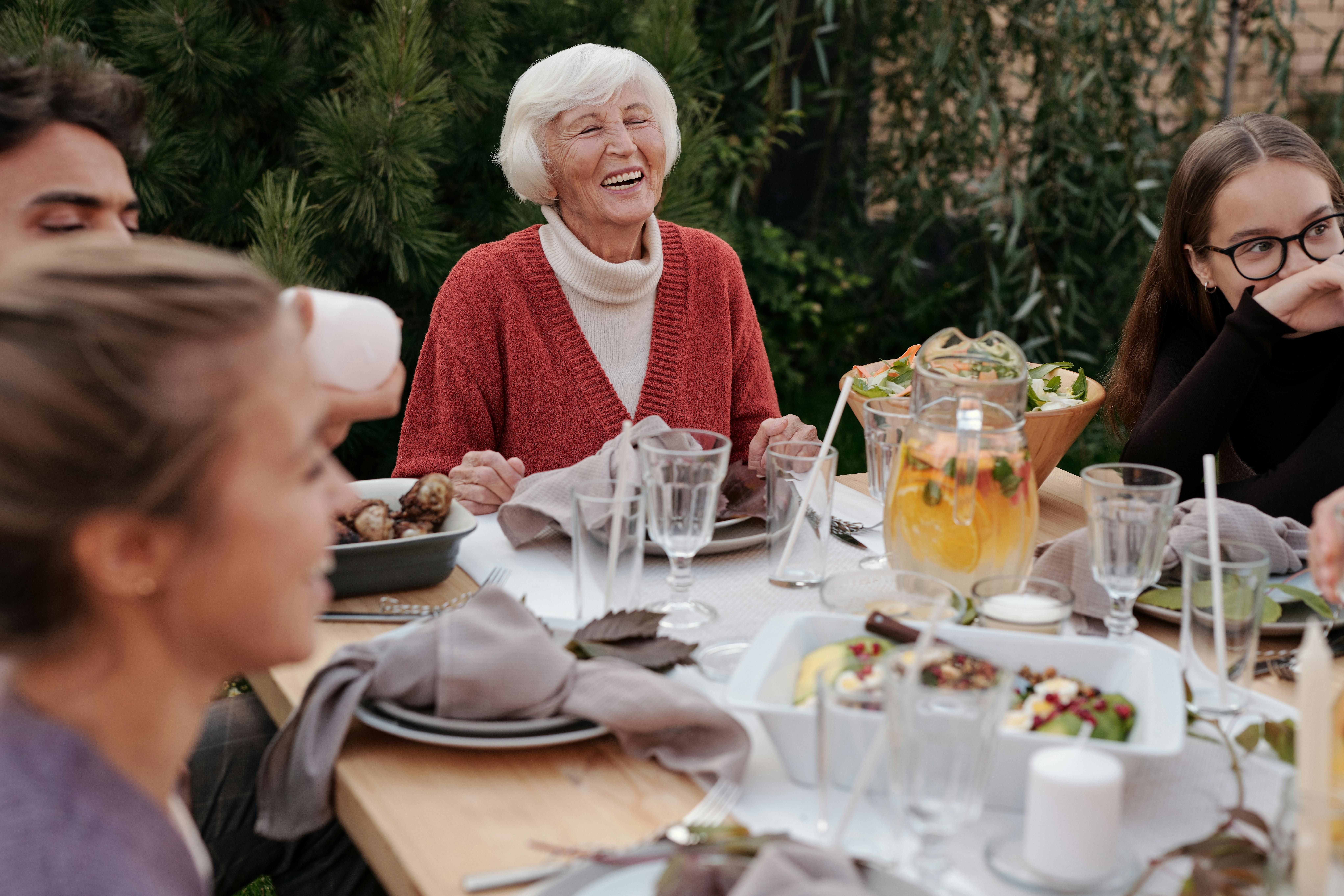
Blue Zone women thrive in tight-knit communities where social interactions are frequent, supportive, and meaningful. These Strong social connections are linked to reduced stress, improved mental health, and a lower risk of dementia.
Takeaway: Building and maintaining meaningful relationships can be just as important as diet and exercise. Regular social interaction can improve mental health, reduce stress, and contribute to a longer, more fulfilling life.
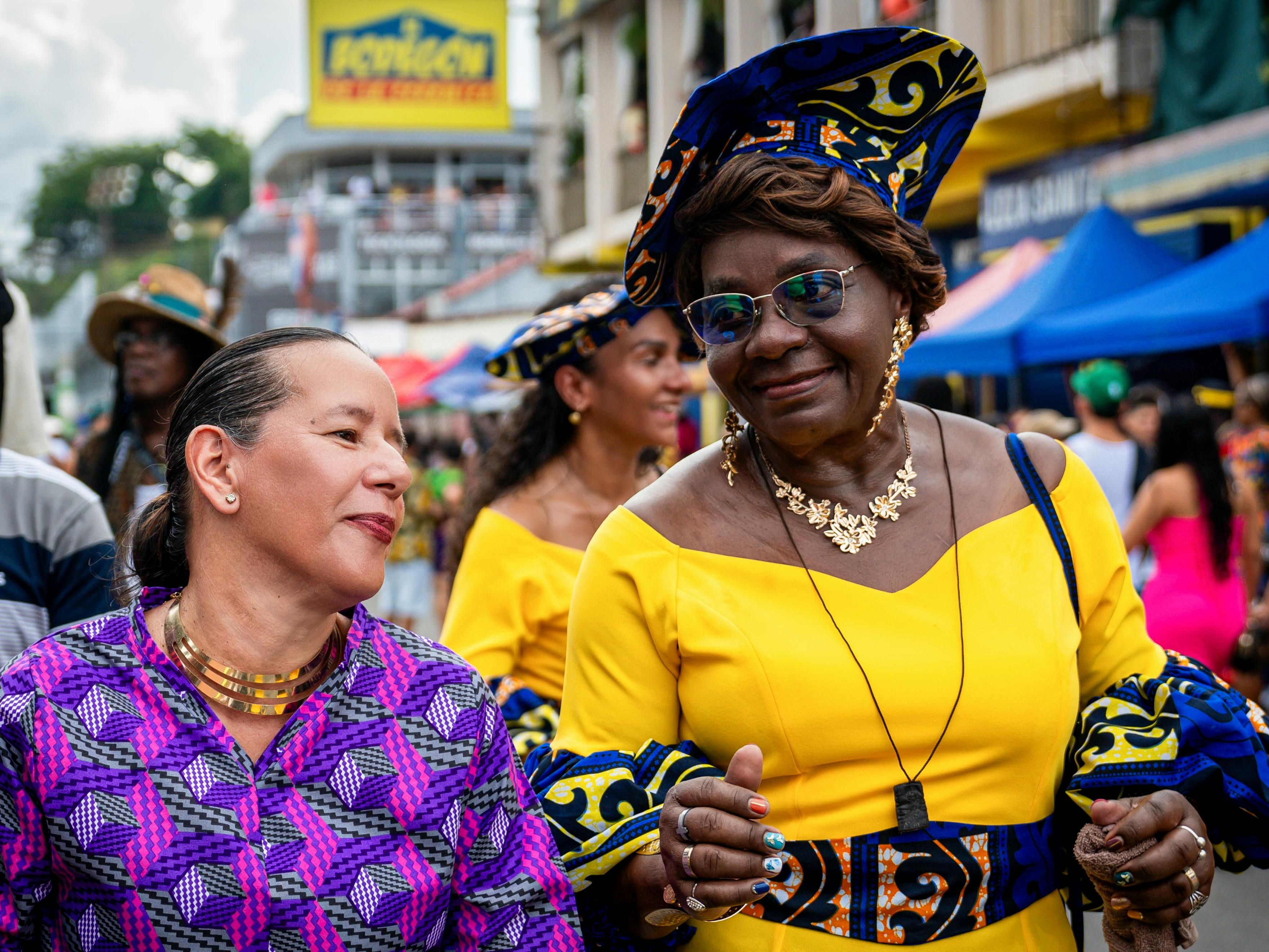
In Blue Zones, women practice ways to reduce stress and live at a slower, more deliberate pace. Chronic stress is a significant contributor to inflammation, which can lead to heart disease, diabetes, and other chronic conditions.
Takeaway: Carve out time for relaxation and stress relief. Practices like meditation, taking naps, or simply slowing down your daily routine can help protect your health and enhance longevity.

In Blue Zones, women find meaning and purpose in their lives, which has a profound effect on their well-being. Whether it’s caregiving, volunteering, or passing down traditions, having a reason to wake up every day can reduce stress and increase life satisfaction.
Takeaway: Find your “why.” Whether through career, family, or hobbies, having a purpose in life is crucial for mental and emotional well-being.
Q: What are Blue Zones, and why are they important for longevity?
A: Blue Zones are regions of the world where people live significantly longer lives, often reaching 100 years or more with fewer health problems. These areas include Okinawa (Japan), Sardinia (Italy), Ikaria (Greece), Nicoya Peninsula (Costa Rica), and Loma Linda (California). The lifestyle habits in these regions—like plant-based diets, strong social connections, and regular movement—have been linked to healthier aging and longevity.
Q: What diet habits do women in Blue Zones follow?
A: Women in Blue Zones typically follow plant-forward, whole-food diets. They consume plenty of fruits, vegetables, legumes, whole grains, and healthy fats like olive oil. While not strictly vegetarian, they limit meat and processed foods, which helps reduce inflammation and improve heart health.
Q: How does physical activity in Blue Zones differ from conventional exercise?
A: Women in Blue Zones don’t engage in intense or structured exercise routines. Instead, they incorporate natural movement into their daily lives, such as walking, gardening, and household chores. This moderate, consistent physical activity contributes to better cardiovascular health and muscle maintenance.
Q: How do strong social connections contribute to longevity in Blue Zones?
A: In Blue Zones, women are deeply embedded in supportive social networks. They often rely on family, friends, and community for emotional and practical support, which reduces stress and improves mental health. Studies show that strong social ties can increase life expectancy by improving emotional resilience and reducing the risk of depression and dementia.
Q: Can I apply Blue Zone habits to my own life, even if I don’t live in one of these regions?
A: Absolutely! While you may not live in a Blue Zone, you can incorporate many of their healthy habits into your life. Focus on eating more plant-based foods, staying active with natural movement, nurturing close social relationships, and finding ways to reduce stress. These simple changes can significantly improve your well-being and longevity.
The information provided in this article is for educational purposes only and should not be considered medical advice. Always consult with a healthcare provider before making changes to your diet, exercise routine, or lifestyle. The longevity habits practiced in Blue Zones are based on observational research, and individual results may vary depending on personal health conditions and circumstances.
The women of Blue Zones offer a treasure trove of longevity wisdom. They emphasize simple living rooted in natural, everyday habits—eating a plant-based diet, staying active, nurturing relationships, and finding purpose. These practices are accessible and can be adapted by women globally to improve health, reduce stress, and increase longevity.
The real lesson here is that living well doesn’t require drastic measures—small, consistent changes make a significant impact. Whether it’s adding more vegetables to your meals, finding time to move each day, or strengthening your social circle, adopting these habits can bring you closer to a longer, healthier life.

As science advances, it’s becoming clear that nutrition is not a one-size-fits-all solution. Enter nutrigenomics, a field of research that explores ho...
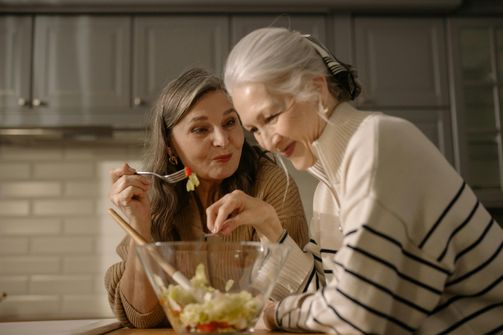
As women age, the nutritional needs of their bodies change, and so does the focus on maintaining health through diet. For women over 50, the omnivore ...

In our fast-paced contemporary world, life often feels like an unending sprint against time; thus, the idea of longevity frequently seems elusive--alm...

The connection between what we eat and how we feel is powerful—certain foods provide the nutrients our brain needs to support mood, energy, and overal...

Social gatherings often mean a spread of carb-heavy foods and tempting desserts that can make sticking to the carnivore diet feel tricky. But with a b...